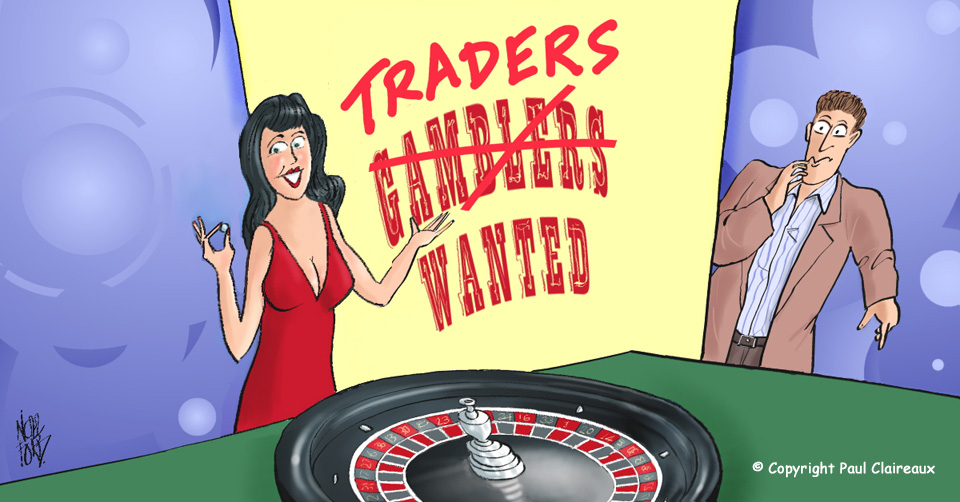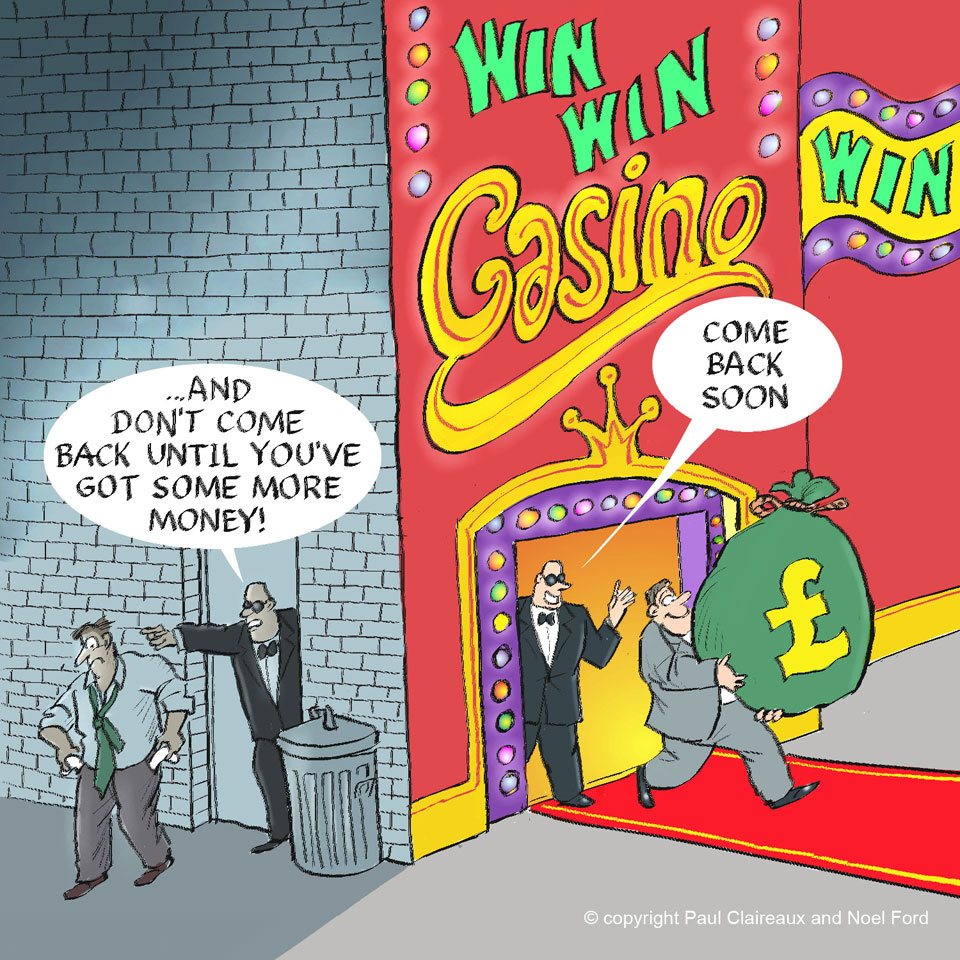Can you help (spread betting) Joe?
Or any of your friends from getting sucked into this hideous gambling activity?

Updated following the tragic recent death of ‘day trader’ Alex Kearns.
This Insight is aimed at helping anyone (like my fictional character Joe, in the story below) to understand the real and horrendous risks of spread betting before it’s too late.
Please share with your friends.
How can this still be happening?
It’s nearly seven years since I first published this story, inside my book ‘Who can you trust about money?’
What’s more, a ‘Cass Business School’ paper, stated that c. 80% of people lost money on this ‘trading’ game, more than 12 years ago.
Thankfully, the UK’s Financial Conduct Authority (the FCA) has done something to help warn people like Joe.
Spread bet providers now have to show what proportion of people lose money on their platform, and the numbers typically confirm that around 80% of users end up as losers.
But these warnings are still not nearly clear enough, in my view, about the risks of spread betting.
As you’ll see below, it’s not just that most people lose a bit of money, many lose everything they put down… and more besides!
How can you lose more than you put down?
Well, follow the story of Joe to find out.
Joe’s story
Joe is 33 years old and married to Naomi.
They have a four-year-old son, Luke, with another on the way and…
They want to move out of their two-bed flat and buy a three-bed house for their growing family.
They both have reasonably well-paid jobs but their cost of living is high and they only manage to save modest amounts each month.
They don’t yet have enough for the deposit on the house that they want – their savings account contains £4,000 and they need around £7,000 (to add to the small amount of equity they have in their current flat) to put down on the new house.
The prices of the types of home they’re looking at did fall a fair bit in the crisis of 2008-09 but have since gone up again, quite a lot.
And now their savings are growing more slowly than the rate at which the required house deposit is increasing.
So they’re getting frustrated that their chances of moving any time soon are slipping away.
Joe takes advice from his mate Phil
One of Joe’s footballing friends, Phil, has mentioned on several occasions how he’s made ‘big money’ with some simple trades on the markets.
Joe knows that Phil is not rich so he’s obviously not making a fortune at this and Phil doesn’t have children so perhaps he can afford to fritter away some of his spare income.
And Joe suspects that this trading game might be risky, but he reckons there’s no harm in checking it out. After all, it might just be the answer to building that £7,000 in double-quick time.
Phil says his trading really isn’t risky and that you can put stop losses on your trades – to limit losses – if you’re nervous. They only cost a small percentage.
Phil suggests setting a stop loss at 2% on the price.
Apparently, it’s easy to set up an account and get started for a modest sum and you can do all the trading online from home.
Joe decides to do some more homework before putting any real trades on.
What is gearing and is it, like this lady says, ‘good’?
He finds out that spread trading is ‘geared’ and needs to know exactly what this means.
There’s a mass of stuff on the trading website but it’s all rather dull and confusing.
So, as he does when looking at most new things these days, he searches on YouTube for a short lesson and soon finds this basic training video which enhances his confidence.
See here
As it says on the video, “gearing is good”!
So that must be correct, yes?
I mean… you can’t post misleading nonsense onto YouTube, can you? 😉
‘So far so good,’ thinks Joe, ‘this might just be what we need to build those funds for the house.’
And the lass in the video clearly understands this, right?
‘Well, she’s very confident… and attractive’, thinks Joe, ‘and she explained the concept very well’
Companies that (falsely) promise to teach you ‘how to get rich’ by spread betting often use young attractive women for marketing because their most likely ‘users’ are young men.

So Joe sets up an account to start spread trading
He decides not to mention this to Naomi as he doesn’t want to worry her.
In any event, she might put the brakes on the idea – she can be a bit like that sometimes!
Joe decides to place a trade on the shares in a mid-sized fast-growing engineering company that he’s familiar with.
He was thinking of buying shares in that company anyway and this seems like a great way to magnify his profits.
So, he places his first trade as an ‘up bet’ at £80 per point.
In this case, a ‘point’ is a one penny move in the share price – which currently stands at 1,000p.
With spread betting you can make either up or down bets depending on which way you think prices will move)
There are, naturally, charges (bid to offer spreads) on these accounts and the price needs to move by more than the ‘spread’ in prices (in the right direction) to start making any profit.
But we’ll ignore these charges in this simple example.
Joe’s trading account informs him that in order to make this trade he must make a deposit (a.k.a a ‘margin’ payment) of £4,000.
This is based on a 5% margin of Joe’s initial ‘total risk exposure’
And that’s just fancy talk for the maximum loss on the trade
The maximum loss on this trade is calculated as £80,000
That’s Joe’s £80 per point bet multiplied by 1,000 (the maximum number of points the share price could fall if it collapsed to zero.
Joe bets it all
Now, £4,000 is everything that Joe has in his savings account with Naomi.
So he does think twice before going ahead.
But after talking the idea over with Phil (over several beers), Joe decides to move their £4,000 into the spread betting account to cover his first trade.
He puts a 2% stop loss in place to prevent any nasty losses, and then it’s done – Joe’s first trade is on.
‘This is fine’, thought Joe, ‘I’ll sell out of this trade once the price rises by about 10% to 1,100p.
‘And that’s a perfectly reasonable bet… given that the price fell by nearly 10% yesterday’ …
… Joe believes it’s common knowledge that prices always bounce back after big falls 😉
He’s also worked out that a 10% price increase would deliver about £8,000 of profit (a 100 point move times £80 per point)
And this would put him and Naomi well on their way to getting their new home.
So, after setting everything up and reading around the site a bit more (over a couple more beers)… Joe crawls into bed quite late that night and then struggles to get off to sleep.
He’s really quite excited about this trade.
The very next day
Unfortunately, just before the markets open the next morning, the company on which Joe has placed his bet issues a profit warning and the price is marked down, a lot, at the open.
Joe can’t believe his eyes – the price has fallen like a stone.
It’s down 10%!
“Crikey,” thinks Joe “that’s bad, that’s really very bad.”
He takes a deep breath and starts to consider how he’s going to break this to Naomi.
Then he remembers…
“It’s okay. I have a stop loss on that trade at 2%.
Thank goodness for Phil’s advice on stop-losses – we’ll be fine.”
Joe calculates that he’ll be down just £80 (that’s the 2% stop loss on his £4,000 stake)
This is clearly not good – but it’s no disaster.
But then Joe remembers that ‘gearing’ thing and re-calculates his losses.
2% of 1,000 points x £80 per point is…
…hang on…
… oh, dear, that’s a loss of £1,600!
That’s 20 times more than I thought I’d lost.
Plus a bit more for the charges in the spread.
Joe considers closing the account immediately to prevent any more losses, but not for long.
“What’s the point of closing the account now?” he thinks,
“That was simply the first trade and I got really unlucky.
I’ll soon make up for that loss on the next trade.
Lightning never strikes twice in the same place – right?”
The Call
Just then, Joe gets a phone call. It’s his account manager at the spread trading company and he’s asking what Joe wants to do with his account.
“What do you mean ‘Do I want to close my account?’” says Joe, “No, of course not, I want to put on another trade – do you think I give up that easily?”
The man on the phone tells Joe that he could close his account by paying in another £4,000.
However, if he wants to place more trades, like before he’ll need to add in another £8,000.
“What?
How on earth can that be?” says Joe,
“I put £4,000 in that account and with my 2% stop loss, I reckon I’m down about £1,600.
There should be plenty left in there to place another trade.”
“Well no, I’m sorry,” says the man.
“Unfortunately the price of the share you’d traded ‘gapped’ down overnight.”
Mind the gap
Joe has no idea what “gapping” means so the man explains.
“Gapping is a sudden shift in the price from one level to another.
It can happen during a trading day or overnight when markets are closed, which is what happened here.
And when the market opened this morning the price was already 10% down.
So yes, your stop-loss sell order triggered but I’m afraid it did so at a much lower price than you were expecting.”
“Hang on,” says Joe.
“Are you seriously telling me that a ‘stop-loss’ might not stop losses when CRAP happens?”
“Well yes,” replies the man.
“You see, you could have bought a ‘guaranteed stop loss’ and this would have protected you from this gapping problem.
However, the guaranteed stop orders have higher charges – which eat into your trading profits . . .
. . . so not everyone goes for them … but obviously, they’re worth it in these situations.
The details are all clearly marked on our site for you to read.”
Joe is shocked, stunned and silent
The man pipes up again.
“So in the meantime, you just need to pay us £4,000 to close down your account…
… or pay in £8,000 to repeat the same size of trade!
Joe only now realises just how stupid he’s been.
To begin with, he’d thought that he was only risking about £80 (The 2% stop loss on £4,000)
Then, when he did the sums again, he thought that he’d lost perhaps £1,600 worst case – because of the 20 times gearing on his return.
And now, because of the price gapping, it turns out that he’s lost £8,000 in just one night.
Their precious £4,000 of savings had all gone on this mad experiment.
And worse still, he’s now in debt to this spread betting company for another £4,000.
What is he going to tell Naomi?
End of story
Okay, so I accept that this may sound like an ‘extreme’ story and yes, it’s designed to ‘hammer home’ a critically important point.
But make no mistake, this sort of thing is happening, a lot, every day, all over the UK.
And yes, the price of even leading company shares can gap by this amount and more!
For example, on the night of 21/22 November 2011, the share price of the holiday company Thomas Cook Group fell by over 50%.
Had that happened on Joe’s investment he’d have lost £40,000 (10 times his stake!)
And Ironically, after the FCA’s announcement, the shares in spread betting provider IG, also crashed by c. 40% in a single day.
But not all losses in spread betting happen this way.
Even without the bad luck of price ‘gapping’, it’s possible to lose money at the rate of perhaps 5-10% of your money on each bad trade.
Either way, the fact is that a great many people do lose the sort of money Joe lost in our example.
And some lose much bigger amounts with spread bets and similar types of geared financial instruments called Contracts for Difference (CFDs).
Some people may only lose a few hundred pounds, some lose thousands or tens of thousands and some lose very big time.
Only a very small number of people win over the medium term and there’s no evidence – which I’m aware of – that any of those winners are anything other than lucky.
All you can know for sure is that you’ll only hear the ‘winners’ bragging about their experience in this super high-risk game.
The psychologists call this ‘survivorship’ bias.
The losers (and there are a lot of them) tend to keep quiet 😉

Do you know about Sean Quinn?
Sean Quinn was an Irish businessman, and in 2008 he was the richest person in Ireland.
The Sunday Times Rich List estimated his personal worth to be €4.722 billion (£3.73 billion).
According to the BBC, between October 2005 and July 2007, Sean Quinn had built up a 28% stake in the former Anglo Irish Bank using CFDs to gamble on the bank share price.
And one might think that Mr Quinn (more than any of us) could afford to pay for the analysis he needed in order to make an intelligent bet on that bank’s share price.
However, the bank share price collapsed just the same and his bet went horribly wrong.
The resulting losses were in large part responsible for Mr Quinn’s bankruptcy in January 2012.
It doesn’t matter how rich you are
The fact is you really can lose everything with this sort of gambling.
So, please take care out there and please share this with all your friends.
If they’re not spread betting, they might know someone who is and needs to be saved from it.
Everyone needs to understand the horrendous risks in these betting products… and before they get ‘sucked’ in and ‘Fecked’ by them, right?
All the best for now
Thanks for dropping in
Paul
For more ideas to achieve more in your life and make more of your money, sign up to my newsletter
As a thank you, I’ll send you my ‘5 Steps for planning your Financial Freedom’ and the first chapter of my book, ‘Who misleads you about money?’

Also, for more frequent ideas – and more interaction – you can join my Facebook group here
Share your comments here
You can comment as a guest (just tick that box) or log in with your social media or DISQUS account.

Discuss this article